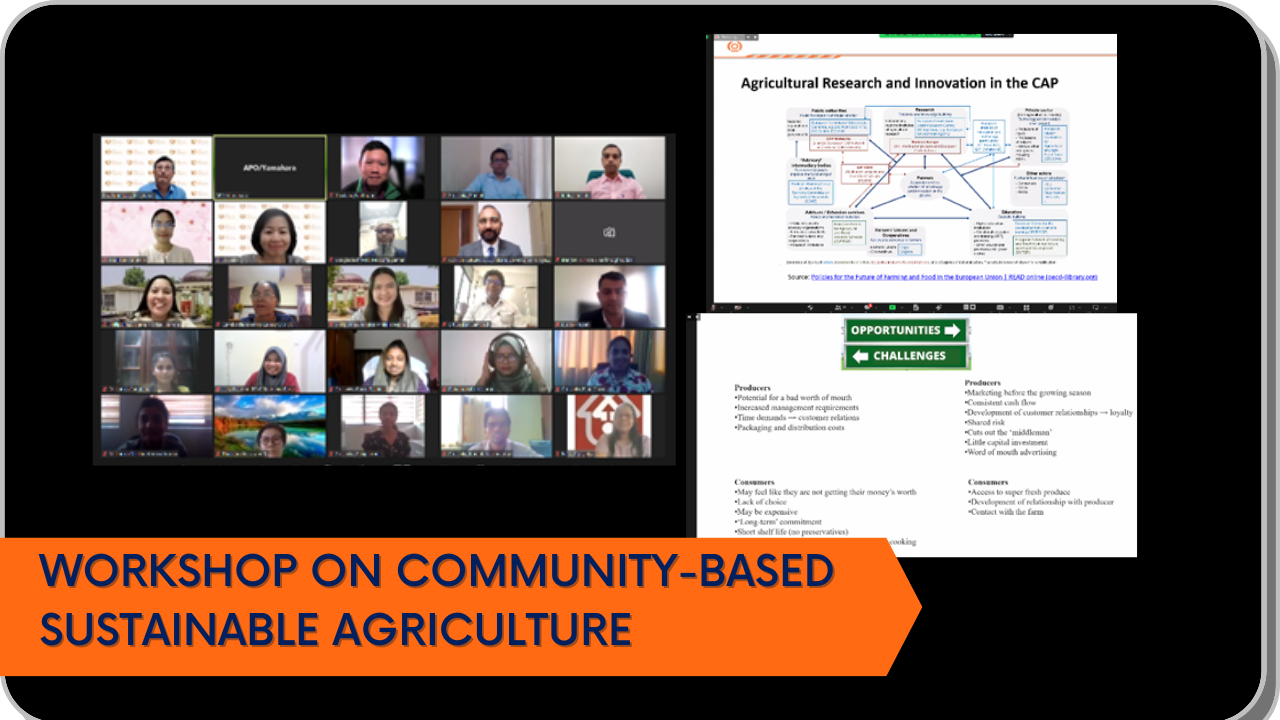
Select Page

Community-based sustainable agriculture (CBSA) is gaining recognition for its focus on sustainable farming and crucial role of local community involvement in planning, implementation, and management. This holistic approach offers numerous benefits, including environmental protection through soil and water conservation, pollution reduction, and biodiversity promotion. Moreover, it creates job opportunities, particularly for women and marginalized groups. However, challenges such as a lack of policies, financing, leadership, and community engagement remain significant obstacles.
From 28 to 30 November, an online workshop on CBSA was jointly organized by the National Productivity Secretariat, Sri Lanka, and APO Secretariat. Thirty-five delegates from 11 APO members attended the workshop, guided by four resource persons from India, the Republic of Korea, the Philippines, and Turkiye. It provided a comprehensive overview of CBSA practices in the EU and their implications for the Asia-Pacific region, with case studies from India, the Republic of Korea, the Philippines, and Turkiye. Participants gained insights into diverse agricultural practices and policies as well as key success factors for promoting CBSA. Group discussions facilitated the analysis and identification of areas to strengthen CBSA in participants’ national contexts.
CBSA represents an integrated approach to farming that aligns with global efforts for sustainable development. The APO is uniquely positioned to contribute to the promotion and adoption of CBSA by providing platforms to connect farmers, experts, and policymakers; and encouraging knowledge exchanges and mutual cooperation for more resilient, productive, sustainable agriculture in the Asia-Pacific.